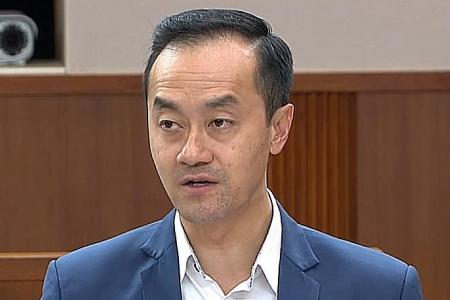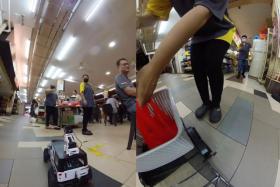18ha high-tech farming hothouse to be set up in Sungei Kadut
18ha set aside for Agri-Food Innovation Park in Sungei Kadut
A plot of land equivalent to 33 football fields in size will serve as Singapore's farming hothouse, as the country seeks to develop and export know-how in the emerging agricultural technology sector.
The 18ha set aside for the Agri-Food Innovation Park in Sungei Kadut seeks to bring together a range of high-tech farming and research and development activities, Senior Minister of State for Trade and Industry Koh Poh Koon told Parliament yesterday.
The park will have indoor plant factories, insect farms and animal feed production facilities, and agencies are working with local and overseas industry leaders to develop its first phase, which should be ready from the second quarter of 2021.
"Our vision is for Singapore to be a leading urban agriculture and aquaculture technology hub with a food production model that can be exported to the region," Dr Koh said during the debate on the Trade and Industry Ministry's budget.
Singapore has also been looking at ways to improve food security.
The agri-tech hub's strategic location, with existing farms in Lim Chu Kang and Sungei Tengah to the west and Senoko Food Zone to the east, will form part of a larger northern agri-tech and food corridor set aside for food-related industries.
It will have space to expand to cater for growth, the ministry said.
Mr Desmond Choo (Tampines GRC) had asked about Singapore's plans to develop the food and agri-tech sector, a $5 trillion global industry that is growing rapidly.
In January, Seeds Capital, the investment arm of trade agency Enterprise Singapore, appointed seven co-investment partners to channel over $90 million in investments to develop Singapore-based start-ups in the agri-tech sector.
Yesterday, Dr Koh said the sector's growth is fuelled by new innovations in processes and products.
And the Republic's good innovation climate, strong talent base, reputation for food safety and strategic location has put it in good stead to capture a slice of this industry, particularly in Asia, he said.
Meanwhile, more homegrown agriculture companies are being helped to expand abroad, Dr Koh added, citing start-up Sustenir's plans to grow in Hong Kong.
The company specialises in growing non-native plants like strawberries locally.
The plan for an agri-tech hub was welcomed by some urban farmers, who hailed it as an important investment in the local farming industry.
Said Comcrop founder Allan Lim: "This is a good move, primarily because all kinds of agri-tech can be in one place. We can then tap into global tech and attract global players to place their interest here."
He added the hub could be "an agri-tech 'village', with everything from how produce is grown, harvested and sent out being integrated in one place".
Dr Koh will lead a multi-agency team to look at better support for the agri-tech industry.
It will look at areas such as research and development, manpower and regulatory flexibility, and work closely with industry players to gather feedback.
Get The New Paper on your phone with the free TNP app. Download from the Apple App Store or Google Play Store now



